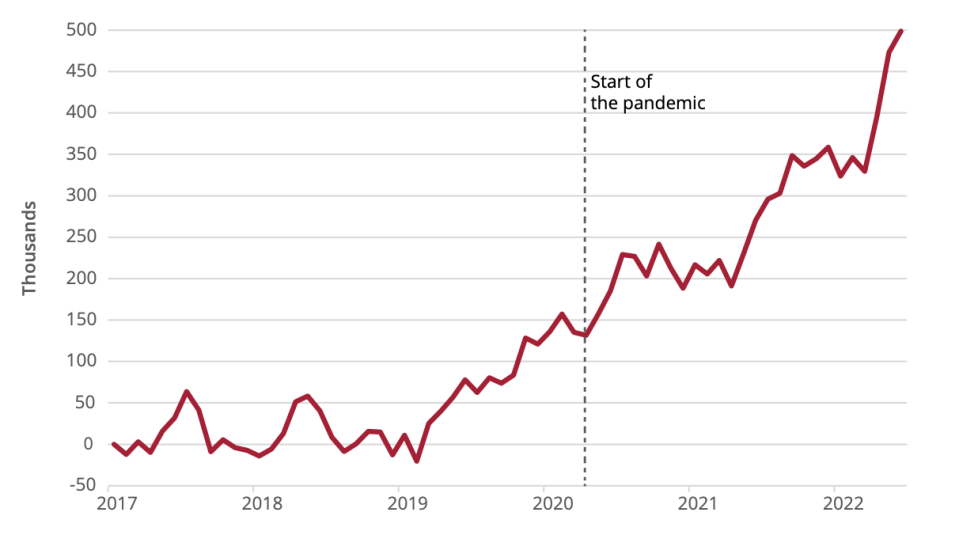Workforce shrinkage risks roiling growth and embedding inflation

A workforce squeezed by older Brits retiring earlier threatens to intensify inflation in the UK and whack economic growth, a new report out today claims.
The some 565,000 people who have left the jobs market since the start of the Covid-19 crisis will drag on a UK economy that is already tumbling into an at least year-long recession, according to the House of Lords’s Economic Affairs Committee.
So-called economic activity – when people are not looking for a job – has surged since the virus hit Britain in early 2020, mainly driven by older workers taking earlier retirement.
The report said earlier retirees “are reasonably well-off, suggesting that retirement may be financially viable for them”.
Changes to pension laws mean people can now access their retirement pots earlier, possibly incentivising people to give up work earlier.
Analysts have highlighted a rise in long-term sickness – possibly due to long-Covid – over the past two years has raised inactivity rates by making it tougher for people to continue working without damaging their health.
However, the report said the recent jump in people flowing out of the jobs market has not been engineered by deteriorating health among the UK population.
“Much of the rise in sickness-related inactivity is among people who were already inactive” before the pandemic struck, the report found.
Change in number of inactive workers due to long-term sickness

Inflation in Britain has taken off over the last year, peaking at a 41 year high of 11.1 per cent.
While initially driven by a sudden burst in demand after Covid-19 restrictions were scrapped globally, price rises were turbo charged by Russia’s invasion of Ukraine roiling international energy markets.
Inflation now seems to have passed its peak, but policy makers at the Bank of England are worried workers could demand high pay rises and businesses may hike prices to protect margins in response to elevated inflation, leading to so-called “second round effects”.
A smaller worker pool, in theory, risks sparking an inflationary feedback loop as it “can add to inflationary pressures—as employers compete for scarce employees by raising wages, adding to the cost of producing goods and services,” the Lords’s Economic Affairs Committee said.
The report also attributed the reduction in the workforce to the UK’s ageing population and a pivot toward more skilled workers migrating to Britain after Brexit.
Inactivity rates in the UK have ticked up, while “similar economies (such as USA, Australia and Canada) have seen their inactivity rates fall after the pandemic,” the report found.
According to the IMF and OECD, the UK is course to notch the worst rate of growth in G7 next year.